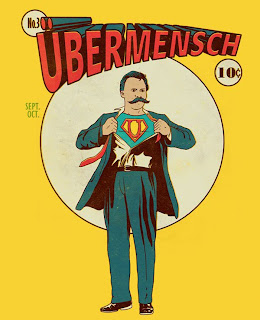 "Under the influence of the first stage of philosophy, man conceives of
the world about him, the world revealed to his sense in space and time,
as a tissue of appearances, more or less illusory. Beyond this world,
inaccessible to ordinary knowledge and perception, lies another world,
the real world of things in themselves; and the world we live in is at
best a shadow, a reflection, of the real world. This idea, in many and
varied forms, is the principal governing idea in the history of
philosophy. Under one guise or another, its expression and development
stretches from the teachings of Pythagoras through Socrates and Plato,
Aristotle, the medieval epoch, the Renaissance, and the modern era"
(146).
"Under the influence of the first stage of philosophy, man conceives of
the world about him, the world revealed to his sense in space and time,
as a tissue of appearances, more or less illusory. Beyond this world,
inaccessible to ordinary knowledge and perception, lies another world,
the real world of things in themselves; and the world we live in is at
best a shadow, a reflection, of the real world. This idea, in many and
varied forms, is the principal governing idea in the history of
philosophy. Under one guise or another, its expression and development
stretches from the teachings of Pythagoras through Socrates and Plato,
Aristotle, the medieval epoch, the Renaissance, and the modern era"
(146).
"The idea of a real self behind the appearances forms the central
doctrine of every great teaching and tradition throughout the ages. It
is always intimately related to the idea of a higher or absolute reality
behind the appearances in the whole of nature. In Buddhism the
Buddha-nature, enlightened Mind, is the true reality of myself and the
universe. In Hinduism, Atman, the real human Self, is Brahman, the Absolute God-Creator-Destroyer-Preserver.
In Judaism, the name of God is I AM, and Christianity reconstitutes
this idea through the teaching about the Holy Spirit which is the
ultimate Self (the "personal God," the Father) acting and suffering
within all men...Pythagoras spoke of a central sun of the whole
cosmos that was also within each man. Plato writes of the highest Being
as like the sun within and outside of man, where reality and the Good
are one and are the ultimate active, causal power - the soul in man, the
power of which is to harmonize all the functions and appearances within
individual human nature. In short, the idea



